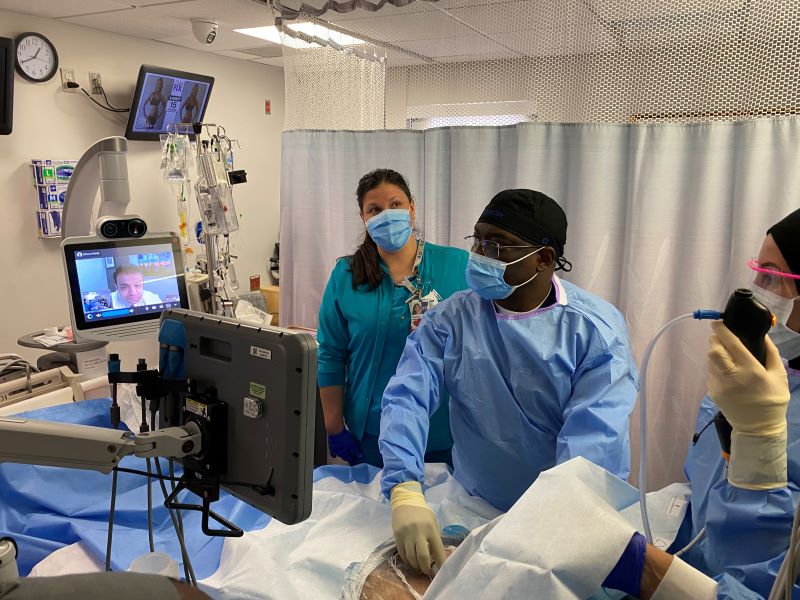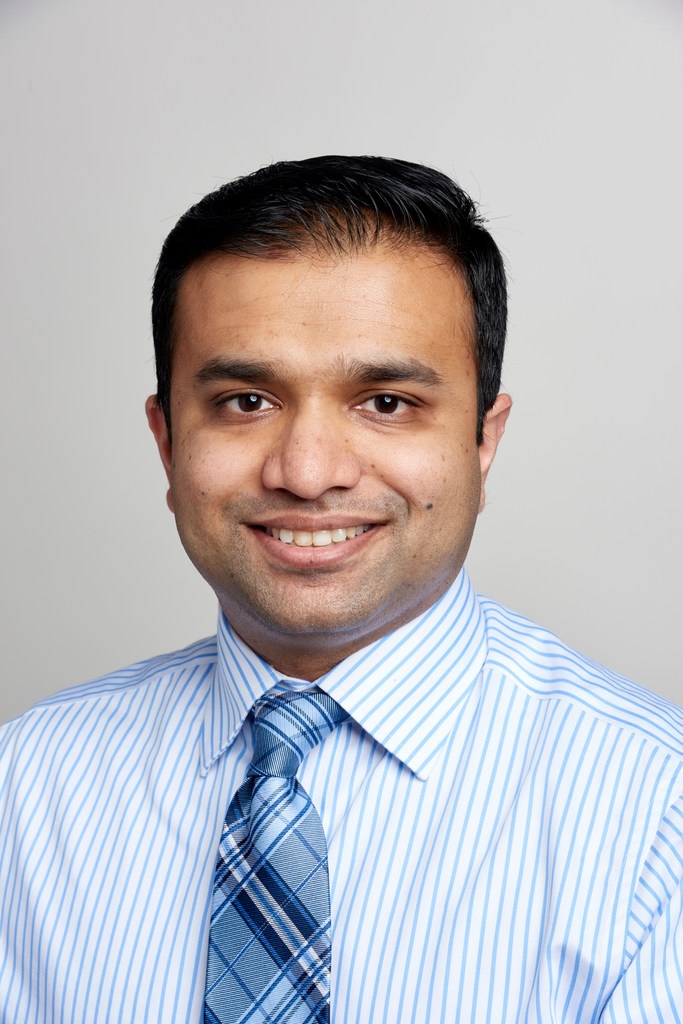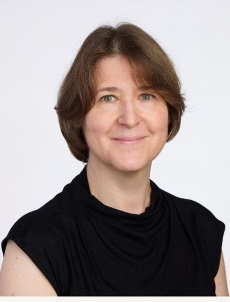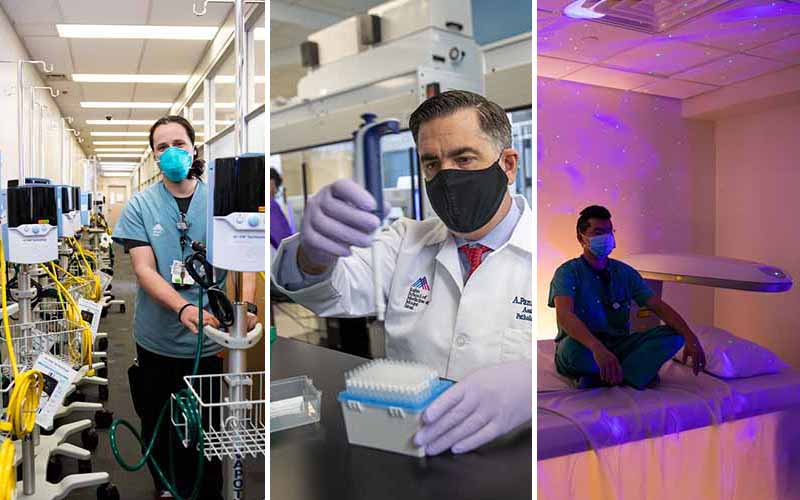The Virtual Doctor in the Room: How Tele-Trach Evolved as a Catalyst for Safety and Quality

A tele-tracheostomy performed at the bedside in the Intensive Care Unit at Mount Sinai Queens Hospital on a patient who had been ventilated for respiratory failure.
It’s been five years since the COVID-19 pandemic’s first cases, and much has changed in the world of medicine. Virtual care, also known as telehealth, became routine, among other virtual adaptations such as iPad hook-ups to IV poles to connect families to say goodbye, and even Zoom classrooms.
A lesser-known adaptation, the tele-consult, allowing a doctor at one hospital to oversee and guide care at another hospital, came about as hospitals swelled with patients and doctors were spread thin.

Dhruv Patel, MD
Dhruv Patel, MD, Director of Quality and Associate Director of the Transplant Intensive Care Unit at The Mount Sinai Hospital within Mount Sinai’s Institute for Critical Care Medicine, was part of a team that helped to make this innovation possible.
In his role at the Institute, he oversees percutaneous tele-tracheostomies from his office at The Mount Sinai Hospital. A percutaneous tracheostomy is a minimally invasive procedure done with a needle that punctures the skin, which is performed at the bedside to create an opening in the windpipe to facilitate breathing.
“The capacity to beam into another hospital to oversee and guide a tracheostomy made a world of difference during the pandemic when we had large volumes of very sick patients on ventilators for prolonged periods,” says Dr. Patel.
“During the pandemic, we performed three times as many tracheostomies, as respiratory failure among infected patients became extremely common. This allowed for faster and less invasive bedside procedures, while avoiding the necessity to transfer critically ill and vulnerable patients to the operating room,” says Dr. Patel. The Institute has continued to train all critical care specialists to become proficient at performing bedside percutaneous tracheostomy.
Leveraging the tele-consult has presented an important training opportunity, says I. Michael Leitman, MD, FACS, Dean for Graduate Medical Education at the Icahn School of Medicine at Mount Sinai. Dr. Leitman, Professor of Surgery and Medical Education, oversees Mount Sinai’s resident training program, which is the largest in the county.
“The introduction of telemedicine and the ability now to do tele-consults at the bedside provides an important advantage for an attending to supervise residents and attending doctors as they round on critical, complex cases,” says Dr. Leitman.
Nazia Mashriqi, MD, MBA, ICCM Site Director at Mount Sinai Queens, performs approximately 30 tracheostomies annually.
“Even though we aren’t seeing many critical COVID-19 patients, we are still performing bedside percutaneous tracheostomies quite often for patients who require prolonged assistance of a mechanical ventilator for other respiratory illnesses, such as the flu or pneumonia. With Dr. Patel tele-consulting and present in the room as we perform these procedures, we can ensure a critical layer of oversight and safety,” says Dr. Mashriqi, who is also part of the Institute’s team. “The procedure is somewhat straightforward, but at the same time, proficiency is key to avoid complications of bleeding due to trauma to nearby tissues. We use multiple layers of visualization including ultrasound and bronchoscopy to enhance the safety of the bedside procedure,” says Dr. Patel, noting that the procedure is now rarely performed in the operating room.
Mount Sinai’s Institute for Critical Care Medicine oversees critical care at seven of Mount Sinai’s eight hospitals in New York, providing highly specialized, life-saving care for patients experiencing the most serious diseases and injuries, and those recovering from complex surgeries.
The Institute’s System Director, Roopa Kohli-Seth, MD, says the team provides care for more than 10,000 patients annually.
“Our critical care teams care for the sickest of patients at Mount Sinai’s hospitals, and the capacity to tele-consult and advise from afar has given us an important advantage in saving lives and ensuring both quality and safety. We see this as a great win for our patients and patient safety overall,” says Dr. Kohli-Seth.











 Before COVID-19 was even formally recognized as a pandemic, David L. Reich, MD, President of The Mount Sinai Hospital, was hearing from his anesthesiologist peers in Europe about a terribly problematic “respiratory disease” with a high mortality rate.
Before COVID-19 was even formally recognized as a pandemic, David L. Reich, MD, President of The Mount Sinai Hospital, was hearing from his anesthesiologist peers in Europe about a terribly problematic “respiratory disease” with a high mortality rate.
